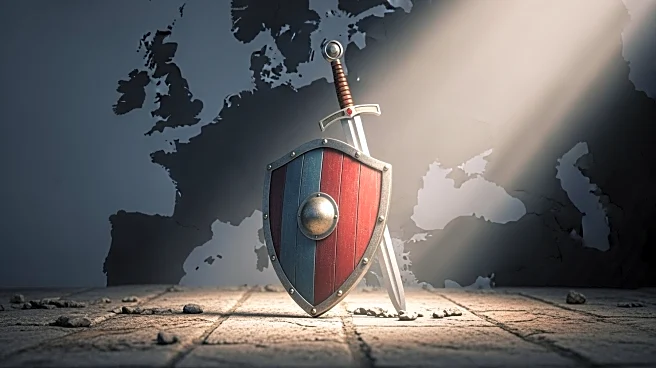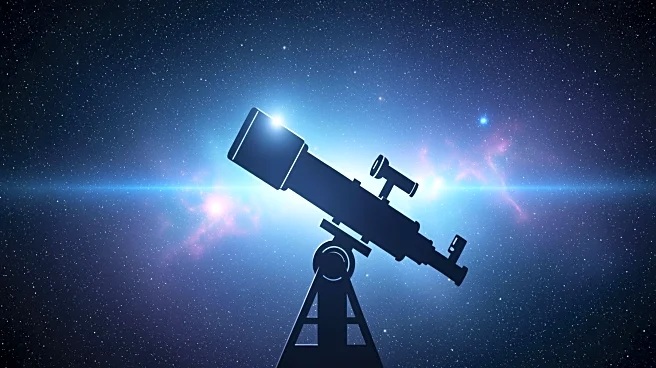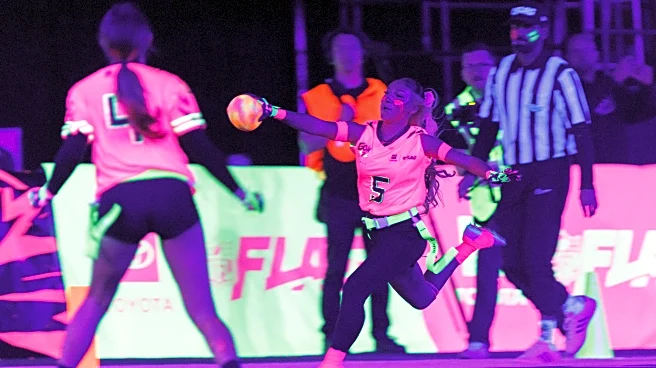What's Happening?
Ukrainian President Volodymyr Zelenskyy is in London for discussions with European leaders regarding military support to counter Russian aggression. The meeting, hosted by British Prime Minister Keir Starmer,
aims to bolster Ukraine's defenses, particularly its power grid, against Russian drone and missile attacks. The talks also focus on providing Ukraine with longer-range missiles and enhancing air defenses. This gathering is part of a broader effort to pressure Russian President Vladimir Putin into negotiations, although he has consistently rejected peace proposals. The meeting includes NATO Secretary-General Mark Rutte and other European leaders, with discussions on forming a 'reassurance force' to support Ukraine.
Why It's Important?
The ongoing conflict in Ukraine has significant implications for European security and international relations. The support from European nations is crucial for Ukraine's defense against Russian military actions. The potential formation of a 'reassurance force' could provide strategic air and naval support, enhancing Ukraine's ability to defend itself. This development underscores the commitment of European countries to counter Russian aggression and maintain regional stability. The outcome of these talks could influence future security arrangements and the geopolitical landscape in Europe.
What's Next?
The discussions in London are expected to further develop the concept of a 'reassurance force,' although a peace agreement remains a distant possibility. The force is likely to focus on air and naval support rather than deploying Western troops in Ukraine. The headquarters for this force may rotate between Paris and London. As the conflict continues, European leaders will need to address funding for Ukraine's reconstruction and establish postwar security guarantees. The international community will closely monitor these developments and their impact on the broader geopolitical situation.
Beyond the Headlines
The ongoing conflict and the international response highlight the complexities of modern warfare and the challenges of enforcing sanctions. Russia's ability to find loopholes in sanctions and its continued military actions despite international pressure demonstrate the limitations of diplomatic efforts. The situation also raises questions about the long-term security architecture in Europe and the role of NATO in addressing regional conflicts. The potential establishment of a 'reassurance force' could set a precedent for future international military collaborations.









